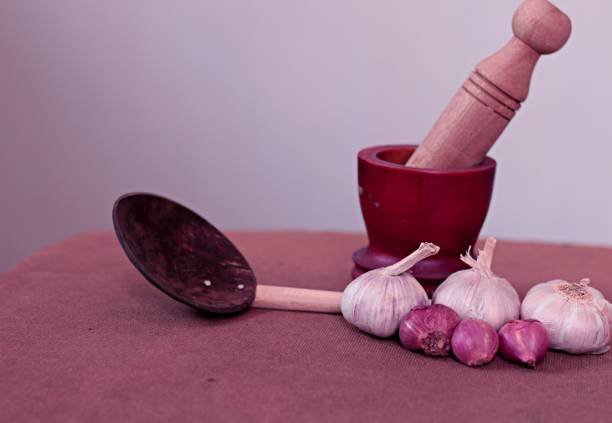And now, living today’s hurried lifestyles, claims for heart health are not exclusive to the older generation. Due to natural stress, unhealthy lifestyles, and unhealthy food intake, cardiovascular problems have become rampant all over the world.
As per the modern allopathic system of medicine, there are so many ways to control and cure heart disease but many are shifting to Ayurveda, a biological healing system from India that focuses on the whole person, using plants, foods, and activities to help the heart to come to its natural healthy state.
Ayurveda was founded on the principles used a few centuries ago, it works with the concept of “dosha,” meaning that it recognizes that there are optimally healthy ways of existence and that every person is different and will receive treatment in particular ways. The following article aims to discuss the possibilities of interacting with Ayurvedic Treatment for Heart Health to become a strong advocate and strengthen cardiovascular health.

Understanding Ayurveda and Heart Health
In Ayurveda, the organ heart is not only the artery and muscle mass but also the feelings, thoughts, and life force energy, or “Prana”. In light of this, Ayurveda postulates that an imbalance whereby the seven varieties of dosha; Vata, Pitta, and Kapha all manifest abnormally within the human body can result in physical disorder of the human body including heart complications. Each dosha impacts heart health in unique ways: When Vata is off-kilter, a person will experience an irregular heartbeat and anxiety; with Pitta, one can become inflamed with anger or lead hypertension; and the Kapha type may slow down, become blocked, or develop high cholesterol.
Concentrates on eliminating an imbalance in the doshas by applying herbs; rules of eating; and movements that tell upon the heart. It is developed to prevent as well as to address the occurrence of heart problems in Ayurveda by harmonizing the body with its inherent oscillations. This differentiated and preventative, comprehensive strategy is the basis for sustaining lifelong cardiovascular health.
Dietary Practices in Ayurvedic Treatment for Heart Health
Food is always a significant component of treatment in Ayurveda and plays a special role in the prevention of heart diseases. According to Ayurveda, one should eat foods that are beneficial to the dosha and foods that will prevent heart problems. The characteristics of warm, moist, and nourishing foods are; soups, cooked vegetables, and whole grains are best recommendable to Vata types because they enhance the stability of energy and also circulation. Pitta types should avoid spicy foods, and hot beverages and should incorporate foods such as cucumber, fresh salad green, and whole grains to cool the heart. It remains for Kapha types to consume lighter and spicer foods that will facilitate digestion as well as decrease cholesterol content.
Apart from dosha-piera, Ayurveda again prohibits foods in excessive processing and fried form that aa is accumulated in the body to affect the circulatory system. Evaluating freshly cooked meals which are full of vegetables & herbs, whole grains make up one of the significant activities in Ayurvedic Treatment for Heart Health. Olive oils or other natural food enhancers like ginger, garlic, and cumin are also encouraged to improve digestion, increase metabolic rate, and thus control cholesterol levels to support heart health.
Lifestyle Recommendations for Heart Health in Ayurveda
Lifestyle is a significant aspect of Ayurvedic Treatment for Heart Health as one’s activities that are practiced in a day could affect cardiovascular health. Ayurveda promotes moderation and is very much in favor of taking activities that reduce stress, improve brain function, and preserve the overall health of the body. Any type of movement is recommended such as yoga and mild cardio training to keep the heart strong and pliant without putting unbearable stress on the body.
Practicing yoga, including ‘Savasana’ (Corpse Pose) and ‘Vrikshasana’ (Tree Pose) alleviates stress, enhances the blood flow, and strengthens the heart muscle. Yoga also includes relaxation measures such as “Meditation,” “Pranayama,” and other “mindfulness” exercises that are laid much stress on in Ayurvedic Treatment for Heart Health. In essence, the rather ‘simple’ practices assist in managing stress, lowering blood pressure, and improving the quality of the brain, all of which are vital in managing heart conditions.
Besides, Ayurveda pays a lot of attention to the creation of the daily regimen or the dinacharya. This is on the belief that regular sleeping habits, proper timing for meals, and breaks in between will assist in the effective running of bodily processes. In inviting the patient to take necessary measures that help in reducing the stress the Ayurvedic treatment tries to avoid or at least reduce the impact of what modern life puts into the heart.

The Role of Detoxification in Ayurvedic Heart Health
In Ayurveda, toxins or “ama” constitute a major agent of diseases as well as heart diseases. Recurring ama over the years contributes to arterial blockage, hypertension, and other heart problems; Ayurvedic Treatment for Heart Health is meant to help eliminate such toxins from the body. In some of these ways, it is possible to practice detoxification for example; Panchakarma which is an Ayurvedic classification process that oil massage, fumigation with herbs, and many other types of the systematic purification processes.
Cleaning the body also helps in circulation and increases power, focus, and well-being, all traits that result in cardiovascular health. Green teas, warm water with lemon, and other Ayurvedic cleansers such as Triphala can also be valuable agents in a very light and natural method of detoxification while maintaining the cardiovascular system clear for proper functioning.
Conclusion
The natural approach from Ayurvedic Treatment for Heart Health presents a comprehensive, coordinated solution to preserving and improving cardiovascular health. According to Ayurveda practices that are centered on balancing the dosha individually, it is easier to provide a remedy to the problems relating to the heart as opposed to the remedies that are given simply to cure the symptoms. This Vedic health system harnesses Arjuna and Ashwagandha herbs, appropriate meal plans based on dosha, and practices in line with a stress-free and clear mind. Other detoxification methods also help the heart as toxins are washed away and blood circulation is kept in check.
For anyone who wants to achieve excellent cardiovascular health through natural or preventive means, Ayurvedic Treatment for Heart Health offers guidance. Heating not only concerns the physiological aspect of health but also incorporates a balance of the mental and spiritual being in man and propounds how such balance can help in the achievement of the docket goal. These results suggest that Healthy Ayurveda tips can be implemented by individuals to establish healthy routines toward heart health in an ever-stressed world.
FAQs
Q1. Are there any side effects to Ayurvedic treatments for heart health?
Ans: Ayurvedic remedies are largely non-toxic especially when administered by a professional who considers the body type and state of health of the patient. Nevertheless, a number of the herbs may cause interactions with the drugs, and detox procedures should be controlled. It is wise to seek a second medical opinion from an Ayurvedic doctor, as well as a regular doctor before starting a new treatment plan.
Q2. Is detoxification important for heart health in Ayurveda?
Ans: Of course, elimination is very relevant in the Ayurvedic management of heart diseases. In the two cultures, toxins, or “ama”, are thought to interfere with the circulatory process and cause heart problems. Such procedures as “Panchakarma”, soft purification with the help of herbal tea, and warm water also help to eliminate these toxins and strengthen the heart and circulation.



